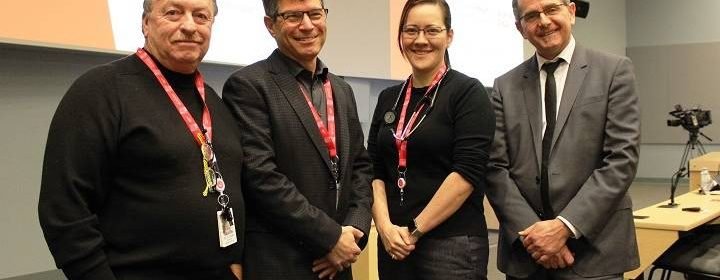Kelowna General Hospital announces $7 million campaign to keep heart patients in Interior

The Kelowna General Hospital Foundation has announced the Right Here at KGH campaign, an effort to keep Interior patients closer to home.
Organizers hope to raise $7 million to bring advanced heart rhythm services and electrophysiology (E.P.) to KGH.
According to KGH, hundreds of patients across B.C’s Interior suffer life-threatening complications from conditions associated with abnormal heart rhythms or cardiac arrhythmia. In all cases, those patients must wait for hospital beds to become available in the Lower Mainland or Vancouver Island.
Related
KGH gets big boost from the province for its half a billion dollar expansion project
 Plans revealed to house families of out-of-town KGH patients
Plans revealed to house families of out-of-town KGH patients
The KGH Foundation and Interior Health’s cardiac sciences team hope to fund a state-of-the-art E.P. lab at KGH, making it the regional hub for IH’s cardiac sciences program.
A public information session and campaign launch was held at KGH. The one-hour program provided insight into the history of the cardiac sciences program, its current status and what the future of the program is.
“The KGH Foundation makes it possible for these advanced services to be available right here in the Interior because of the support that is provided by the community,” said KGH Foundation CEO Doug Rankmore.
“Working together, we are able to provide funding to allow services, like cardiac electrophysiology, to be offered sooner than may have otherwise been the case. This is part of what makes KGH advanced healthcare facility and Kelowna a very special place to live.”
Dr. Kathryn Brown, medical director of IH cardiac diagnostics and director of KGH Echo Labs, said she’s excited about the partnership.
“As cardiac physicians and surgeons, we are absolutely working arm-in-arm with the KGH Foundation to bring EP to KGH. We’ve already seen first-hand, how many donors can have a direct impact on the quality and accessibility of patient care we can deliver.”
The goal is to have the E.P. lab operational by the summer of 2020.
Source: Read Full Article


